This week brings a fascinating comparison between Charlotte (where the Carolina Panthers play) and Philadelphia. We’ve had very different growth trajectories since World War II. In 1950, Philadelphia had a population of almost 2.1 million people spread over 130 square miles, while Charlotte had a population of 134,000 spread over 30 square miles. By 2010, our population was 1.5 million over the same 130 square miles. But Charlotte’s population had grown to 736,000, while its land size had increased to 300 square miles. And Charlotte is still rapidly growing.
According to Prof. Richardson Dilworth at the Drexel Center for Public Policy, the data below really tells the story of Charlotte’s recent growth. “This explains the lower voter turnout,” Dilworth explains. “People newer to a city have not yet learned the local politics and are thus less likely to vote. The greater geographic size of the city most likely also explains the lower ‘biking to work’ number.”
Dilworth points out that Charlotte has been fueled by a vibrant local economy driven by jobs. New firms—especially banks—have relocated to Charlotte due to what The Milken Institute, a nonprofit think tank founded by Wharton alum Michael Milken of 1980s junk bond fame, calls a “competitive business climate.”
“That basically means low state and local taxes, not much of a union presence, and a high-skills workforce,” says Dilworth.
You can see the difference in our two economies by looking at who employs each city’s respective citizens. “In Philadelphia, almost all the major employers are either government agencies—the federal and city government, the school district—or nonprofits—the University of Pennsylvania, HUP health system,” he says. “In Charlotte, with the exception of the school district, the largest employers are almost all for-profit companies: Wells Fargo, Walmart, Bank of America, Lowe’s, American Airlines.”
As a result of Charlotte’s more vibrant local economy, the city has higher educational levels, median home values and median family incomes, as well as lower poverty rates.
Next week, we have our bye week, a chance to rest and recover for the remainder of the season. We’re back at it against Dallas on November 8.
Note: Stats are for the city of Charlotte, North Carolina, where the Panthers play.
Results

PhiladelphiaEagles |
|

CarolinaPanthers |
|
% BA or higher
24.4 |
7 POINTS
Panthers |
% BA or higher
40.6 |
|
% Below poverty
27.2 |
7 POINTS
Panthers |
% Below poverty
17.7 |
|
% Bike to work
2.1 |
7 POINTS
Eagles |
% Bike to work
0.2 |
|
% Moved to city in past year
4.6 |
7 POINTS
Panthers |
% Moved to city in past year
7.8 |
|
Violent crime per 1,000 residents
11.0 |
7 POINTS
Panthers |
Violent crime per 1,000 residents
6.1 |
|
% Volunteer
26.1 |
7 POINTS
Panthers |
% Volunteer
33.1 |
|
% Voted in last mayoral election
19.57 |
7 POINTS
Eagles |
% Voted in last mayoral election
16.23 |
|
Income Inequality Index
.51 |
7 POINTS
Tie |
Income Inequality Index
.51 |
|
% of population aged 22 to 34
22.5 |
7 POINTS
Eagles |
% of population aged 22 to 34
21.8 |
|
Final Score
21 |
Carolina
Panthers |
Final Score
35 |
Sep. 14 |
21-35
Falcons |
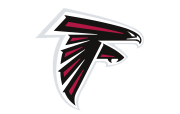
Falcons |
Sep. 20 |
21-42
Cowboys |

Cowboys |
Sep. 27 |
28-35
Jets |
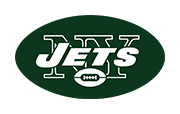
Jets |
Oct. 04 |
14-42
Redskins |
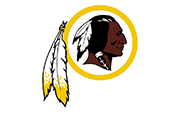
Redskins |
Oct. 11 |
21-42
Saints |

Saints |
Oct. 19 |
28-35
Giants |
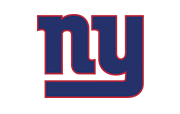
Giants |
Oct. 25 |
21-35
Panthers |

Panthers |
Nov. 08 |
21-42
Cowboys |

Cowboys |
Nov. 15 |
56-0
Eagles |
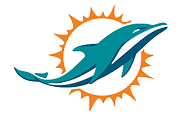
Dolphins |
Nov. 22 |
35-28
Eagles |
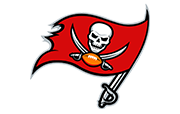
Buccaneers |
Nov. 26 |
42-7
Eagles |
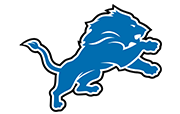
Lions |
Dec. 06 |
28-35
Patriots |

Patriots |
Dec. 13 |
42-21
Eagles |
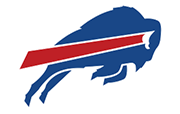
Bills |
Oct. 19 |
35-28
Eagles |

Cardinals |
Dec. 26 |
14-42
Redskins |

Redskins |
Jan. 03 |
35-28
Eagles |

Giants |
Civic Record:
EAGLES |
Wins
5 |
Losses
7 |
Upcoming Games:
Data compiled by Ken Gross, Quantitative Innovations.
All data from the U.S. Census American Community Survey 2011-2013 except:Volunteer rates; crime stats.
Voter turnout rates from Philadelphia’s 2011 general election; Charlotte’s 2011 general election.
More info on the GINI Index of Income Inequality.
* All team logos are property of the NFL and their respective franchises.
Homepage photo: Brian Garfinkel/Philadelphia Eagles




